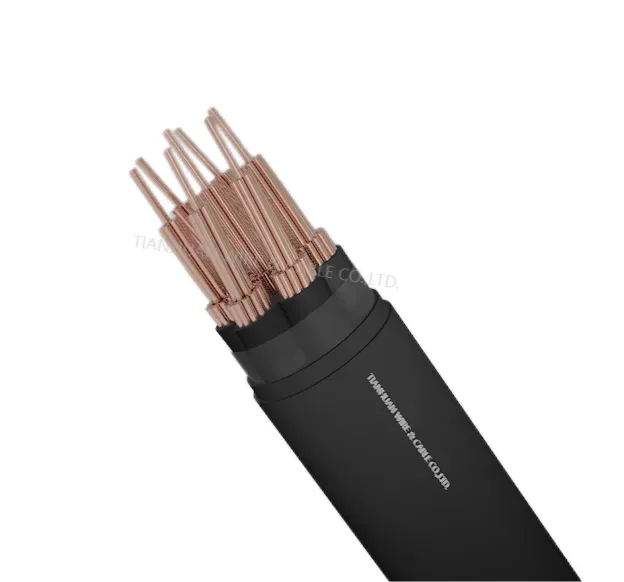
Premium Flexible Control Cables for Enhanced Performance and Durability in Diverse Applications
High Quality Flexible Control Cable An Essential Component in Modern Industries
In today’s rapidly evolving industrial landscape, high-quality flexible control cables play a pivotal role in ensuring efficient operation and reliability of machinery and equipment. These cables are designed to provide superior performance in a wide range of applications, making them an integral component in various sectors, including manufacturing, automation, robotics, and telecommunications.
What is a Flexible Control Cable?
A flexible control cable is specifically engineered to carry power and control signals between stationary and movable parts of equipment. Unlike rigid cables, flexible control cables can withstand repeated bending and twisting without suffering from wear and tear. This flexibility is crucial in dynamic applications where mobility and flexibility are essential, such as in robotic arms or conveyor systems.
Typically, these cables consist of multiple conductors wrapped in a durable outer sheath that protects against environmental factors like moisture, dust, and chemicals. The quality of the conductors and the insulation materials used significantly affects the cable's performance, lifespan, and efficiency.
Key Features of High-Quality Flexible Control Cables
1. Superior Conductivity High-quality cables are often made with copper or aluminum conductors that offer excellent electrical conductivity. This ensures minimal power loss and optimal performance in control applications.
2. Enhanced Flexibility A well-designed flexible control cable incorporates numerous thin strands of wire, allowing for increased flexibility and resilience. This feature is vital in applications involving continuous movement, as it minimizes the risk of cable failure.
3. Durability and Protection The outer insulation of flexible control cables is crucial in safeguarding the internal conductors from external damages. High-quality cables utilize robust materials, such as PVC or polyurethane, that are resistant to abrasion, chemicals, and extreme temperatures.
high quality flexible control cable

4. Shielding and Noise Reduction Many high-quality control cables come with shielding that protects against electromagnetic interference (EMI) and radio frequency interference (RFI). This shielding is essential in environments where electrical noise could disrupt signal transmission.
5. Compliance with International Standards Reliable flexible control cables typically conform to various international safety and quality standards, such as UL, IEC, and RoHS. This compliance ensures that they meet strict performance criteria and are safe to use across different applications.
Applications of Flexible Control Cables
The versatility of high-quality flexible control cables allows them to be utilized in various applications. One notable area is in industrial automation, where these cables connect sensors, actuators, and controllers that operate machinery. Their ability to endure harsh conditions makes them suitable for use in factories and production lines.
Moreover, in the field of robotics, the need for flexible movements necessitates the use of high-performance control cables. These cables allow robots to operate with precision and efficiency, adapting to different tasks while maintaining reliable communication and power supply.
Another significant application is in telecommunications, where flexible control cables facilitate the transmission of signals between different components, ensuring that data is transferred efficiently and without interruptions.
Conclusion
In conclusion, high-quality flexible control cables are fundamental to the seamless operation of various industrial applications. Their superior design, durability, and flexibility make them indispensable in maintaining efficiency, safety, and reliability in modern machinery and systems. As industries continue to innovate and adopt new technologies, the demand for top-notch flexible control cables will undoubtedly grow, further emphasizing the importance of investing in high-quality components for future advancements. Whether in manufacturing, automation, or telecommunications, the role of flexible control cables is crucial in powering the engines of progress.
-
The Quantum Leap of XLPE Cable in Power DistributionNewsMay.29,2025
-
Mastering the Essentials of Building WireNewsMay.29,2025
-
Innovative Horizons of Rubber Trailing CablesNewsMay.29,2025
-
Exploring the Versatile World of Rubber CablesNewsMay.29,2025
-
Decoding the Mysteries of Building CablesNewsMay.29,2025
-
Advancements Redefining Control Cable TechnologyNewsMay.29,2025
-
Why It's Time to Replace Old Rubber CablesNewsMay.28,2025














